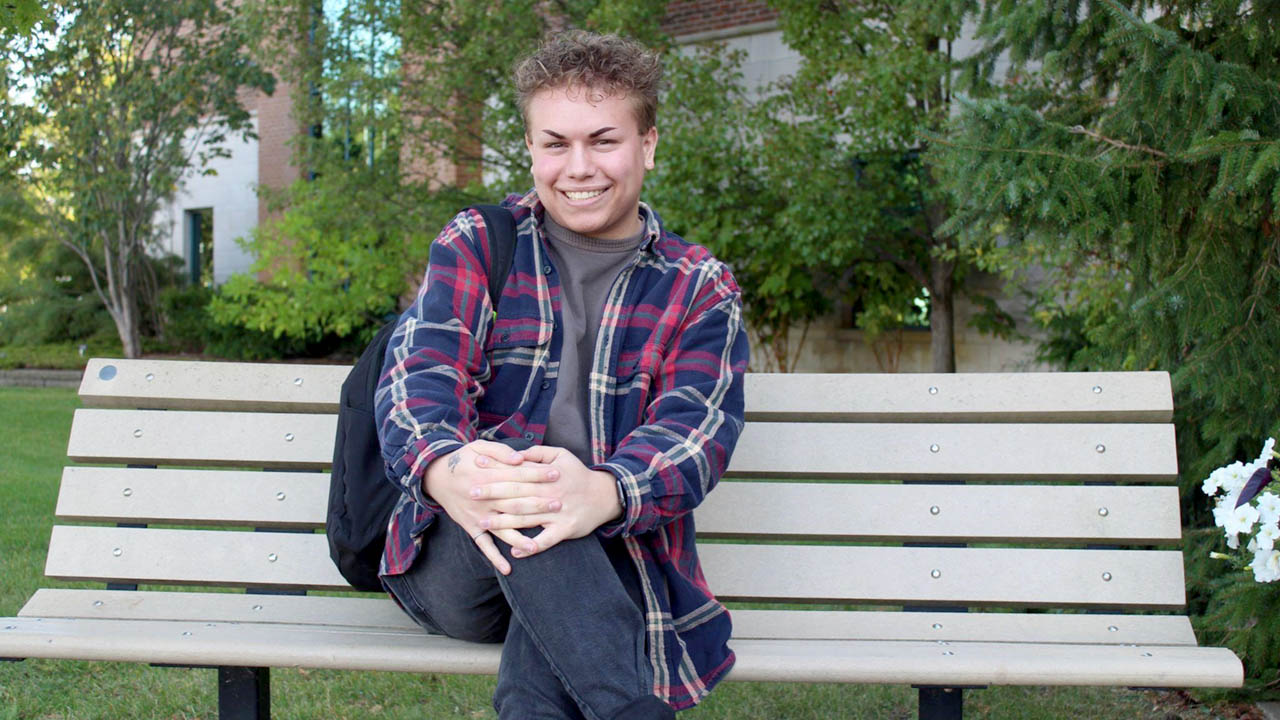Fanshawe staff, students share how to manage anxiety
 CREDIT: EMMA BUTLER
CREDIT: EMMA BUTLEREthan Justus is one of many students who deal with anxiety, but he has found what works for him to improve his overall life.
Most students have dealt with mental health issues before, and one that is very common is anxiety. There are many ways that anxiety can affect people’s lives and health. Anxiety essentially means you are under perpetual stress, which can cause many issues with your health. It can have a toll on your digestive system, cause neurological and cardiovascular problems, and many more illnesses. It can also play a toll on your quality of life, relationships and addiction problems.
According to the National Institute of Mental Health (NIMH), generalized anxiety disorder (GAD) usually involves a persistent feeling of anxiety or dread, which usually interferes with daily life. People living with GAD experience frequent anxiety for months if not years. Some symptoms of this disorder include feeling restless, being easily fatigued, having difficulty concentrating, headaches, muscle aches, stomach aches, difficulty controlling feelings of worry, and sleep problems. There are different types of anxiety disorders, one being GAD, another is social anxiety disorder, and separation anxiety disorder. Within those other disorders there are many different types of symptoms that go with them.
Jeff Buchanan has been a clinical counsellor for over a decade and has been with Fanshawe for just over two years. He explained how finding the right treatment is the best thing someone can do.
“There are many types of coping skills and counselling modalities that can be helpful,” Buchanan said. “It can be dependent on what the individual finds most useful. However, learning how to calm the body and challenge the anxious thoughts are universally helpful regardless of how you manage these skills.”
Ethan Justus is a Fanshawe student who has struggled with mental health and anxiety. He shared his story of how he found what works for him.
“Growing up, being a closeted gay man, it was really hard,” Justus said. “I was always so confused with what I wanted and what was portrayed to me to be the ‘right’ way to live life. My anxiety developed because I was hiding a true part of myself, and getting judged and ridiculed for any feminine thing I did. My mom took me to Woodstock to an outreach program where I could just have a therapy session with a psychologist at no charge. She diagnosed me with [GAD] and was able to get me on some medication. It has only been up from there.”
Outreach can help many people deal with anxiety and other mental health problems that they may face.
Another Fanshawe student, Gibson Szafran, uses a helpline called Reach Out to manage their anxiety.
“Without Reach Out, I don’t know what I’d be doing. They have been a major support, absolutely amazing, every single time. Friends aren’t trained to help you when you are in the swirling, black hole of an anxiety attack. Reach Out is the single best (metaphorical) lifeline I have had in my life,” said Szafran.
Szafran said they also use the use the five senses grounding techniques to cope with anxiety, box breathing, mantras, playing instruments, physical activity and music.
“It’s very good to have varied and different coping methods so when some don’t work you have the different ones that possibly can. And it’s good to have something that can completely occupy your mind,” Szafran said.
Both Justus and Szafran have one thing in common and that is to talk about your anxiety and to reach out to others. Many people struggle with some sort of anxiety, or will at some point in their lifetime.
“I recommend people focus on a balanced lifestyle where self-care is a focus and to encourage people to seek counselling or family doctor if they feel their anxiety is becoming unmanageable,” Buchanan said.
Reach Out can be contacted at 519-433-2023.

















